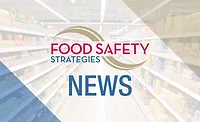FSIS announces 2019 sampling and residue programs

In the Nov. 30, 2018, edition of the Food Safety and Inspection Service’s (FSIS or the agency) Constituent Report, FSIS announced posting its Annual Sampling Program Plan and its National Residue Program (NRP) Sampling Plan for Fiscal Year 2019 (FY 2019). The programs are key components of the agency’s verification activities to ensure inspections are effective at keeping microbiological contaminants and chemical residues out of commerce. Below is a brief summary of the programs, including changes planned for the new fiscal year.
The 2019 Sampling Program
The FY 2019 Annual Sampling Program Plan provides information on the agency’s various sampling programs, changes to the plan from 2018 to 2019 and the agency’s overall strategy for directing sampling resources. Although the agency does not expect to significantly increase the number of samples tested in 2019, there will be some changes to the allocation of samples:
Salmonella and Campylobacter - Poultry: the number of samples planned for FY 2019 remain largely unchanged from the previous year, with the following exceptions: Salmonella poultry performance standard sampling for low-volume and religious-exempt projects will decrease to better align with collection rates from FY 2018; and sampling of imported poultry products will decrease to align with import volumes. Pork: samples allocated for Salmonella exploratory sampling will increase but import sampling allocations will decrease to align with FY 2018 import volumes. Siluriformes: sampling allocations for imported Siluriformes will decrease to align with FY 2018 volumes.
Ready-To-Eat (RTE) Listeria monocytogenes and Salmonella: FSIS plans to increase the number of samples allocated for Routine Lm Risk-Based Sampling (RLM) in 2019.
E. coli O157:H7 and non-O157 Shiga Toxin-producing E. coli (STEC): There is an increase in the MT64 project (raw ground beef components other than trim) to reflect the successful implementation of FSIS Notice 38-12 (product group changes) and the number of samples taken in FY 2018. There is a decrease of samples planned for imported “other ground beef components and trim” to align with import volumes from FY 2018.
Chemistry and Residues: The number of samples planned for National Residue Program (NRP) sampling have been updated based on FDA and EPA analysis of exposure risk. There is a decrease in the number of samples allotted for import residue sampling due to the volume of imports seen in FY 2018. The agency also intends to direct more sampling to raw products than processed products. FSIS will continue to collect domestic beef, pork, poultry and Siluriformes product samples for the dioxin study that began on June 1, 2018.
Other Sampling Programs: FSIS has made no changes to the number of samples planned for other sampling programs.
The FY 2019 Residue Sampling Plan
The NRP outlines sampling plans for domestic products, imported products and Siluriformes. Within the NRP, there are three tiers of sampling, which take different approaches to sampling for chemical residues:
Tier 1 is the scheduled sampling of specific slaughter subclasses at time of slaughter following ante-mortem inspection;
Looking for quick answers on food safety topics?
Try Ask FSM, our new smart AI search tool.
Ask FSM →
Tier 2 consists of inspector-generated sampling and targeted sampling in response to observations in plants and across industry; and
Tier 3, like Tier 2, targets potential problem areas in response to industry concerns, except that it targets testing at the herd or flock level.
There are several changes planned for FY 2019. These include:
Egg Products: FSIS extended the multi-residue pesticide method to egg products in FY 2018. Moving forward in FY 2019, egg products will be analyzed for pesticides;
Roaster Swine: FSIS has reported carbadox violations in roaster swine for the past three years. In FY 2019, roaster swine have been added to the Tier 1 sampling plan instead of the Tier 2 sampling plan;
Metals: In FY 2018, FSIS extended the metal method to include arsenic. In FY 2019, FSIS-regulated products will be analyzed for metals;
Imports: FSIS will reallocate import residue samples. The reallocation will not decrease or increase the overall number of residue samples collected but rather focus on assigning more residue samples to raw products instead of processed products; and
Nitrofuran: FSIS is evaluating a possible Tier 3 nitrofuran analysis project for FY 2019. This is in response to a FY 2018 exploratory study wherein FSIS evaluated whether semicarbazide, the primary metabolite of nitrofurazone, could be detected in chicken samples before and after processing.
It is important to note that the number of samples planned for each FY may be different than the number of samples taken. This may result from other inspection priorities, product availability and other unforeseen reasons. FSIS will review evaluation results annually and make necessary changes to the sampling plans for future years.








